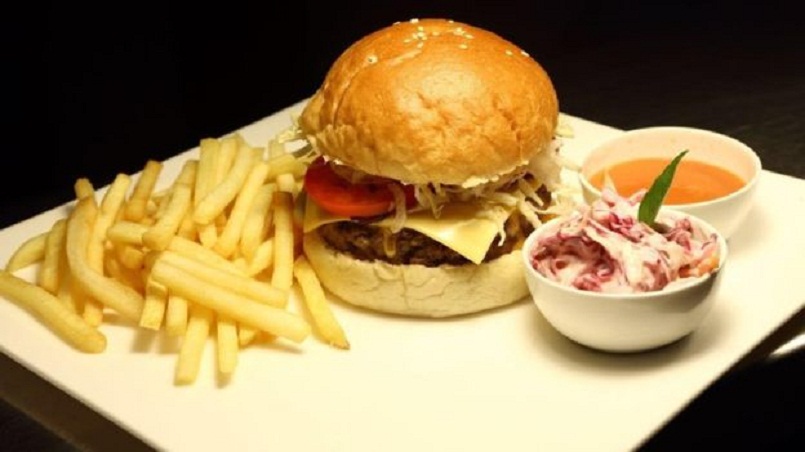
Kerala is the first state in India to introduce a "fat tax" on burgers, pizzas, doughnuts and tacos served in branded restaurants.
The recently-elected Communist government says the 14.5% tax is aimed at making people more conscious about food choices and curbing obesity.
"This is more of a preventive measure as Kerala's food habits are changing dramatically. People are eating a lot of junk food and rejecting traditional food," says Finance Minister Thomas Isaac.
Kerala has the most number of people suffering from obesity after the northern state of Punjab in India, according to a national family health survey. With increasing affluence, lifestyle diseases are on the rise and the government aims to check this with the fat tax.
Discriminatory?
But the southern state is a relatively new stop for global fast food chains like McDonald's, Burger King, Domino's and KFC.
McDonald's, the world's biggest fast food chain, has only seven restaurants in Kerala and Burger King just launched its first outlet in Kochi a few weeks ago.
While Burger King didn't want to comment on how this newly imposed tax will affect it, an official statement from McDonald's said the company would be studying the details of the proposal.
Local cafe owners though are more vocal about the proposed tax.
Isaac Alexander, owner of a popular cafe in Kochi, says the "ambit of taxation is very narrow".
"A lot of local food is more fatty and unhealthy. I don't think the tax is a bad thing but it has to be comprehensive and acceptable to all the stakeholders," says Mr Alexander.
"Otherwise it is discriminatory. Just because you serve pizza and burger doesn't mean other people are serving healthy food."
This is a sentiment echoed by Annie Joseph, a self-professed fast food enthusiast.
"We already pay a number of taxes. This [fat tax] will just add to that. Instead the government should promote health food and bring down their prices," she says.
Broadening the net
But the government isn't unduly worried about the criticism and says it is targeting only the "elite section of the society" with this tax and that its main aim is to improve public health and get people thinking on what they eat.
Levying taxes on high calorie food items and drinks is one way to rein in consumption.
Denmark introduced a fat tax in 2011 but repealed it by 2013 when it found consumers shopping across the border for high fat goods.
Hungary taxes foods high in sugar, salt and fat. Mexico taxes sugary drinks, breakfast cereals and sweets. In the US, battles are being fought over taxes on sugary drinks. Philadelphia became the first major city in the US to introduce a soda tax.
Meanwhile, the Kerala government has plans to impose the tax on more food items, including refined flour goods and sugary drinks in the near future.
"The fight against fat has just begun," says minister Thomas Isaac.
